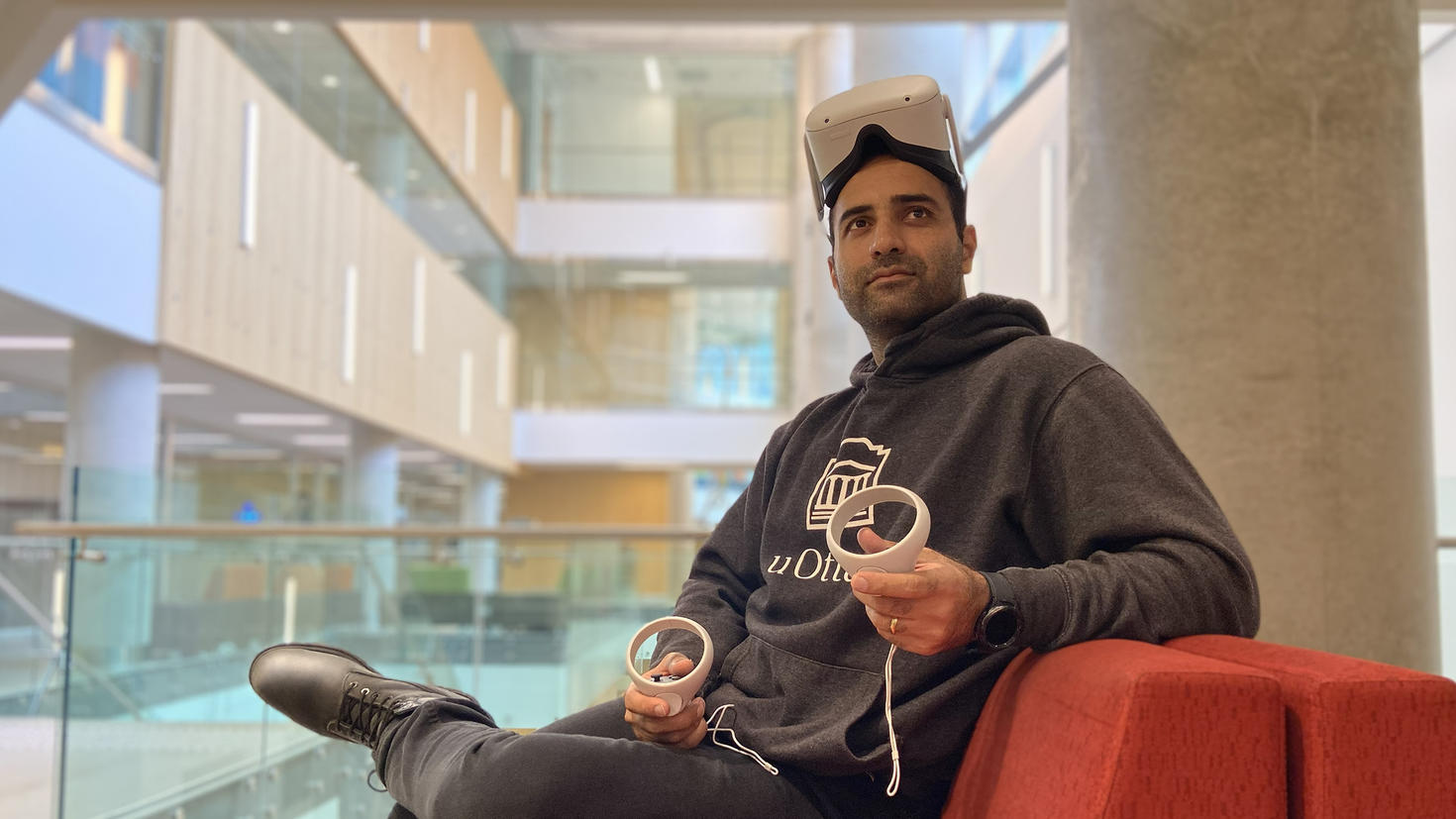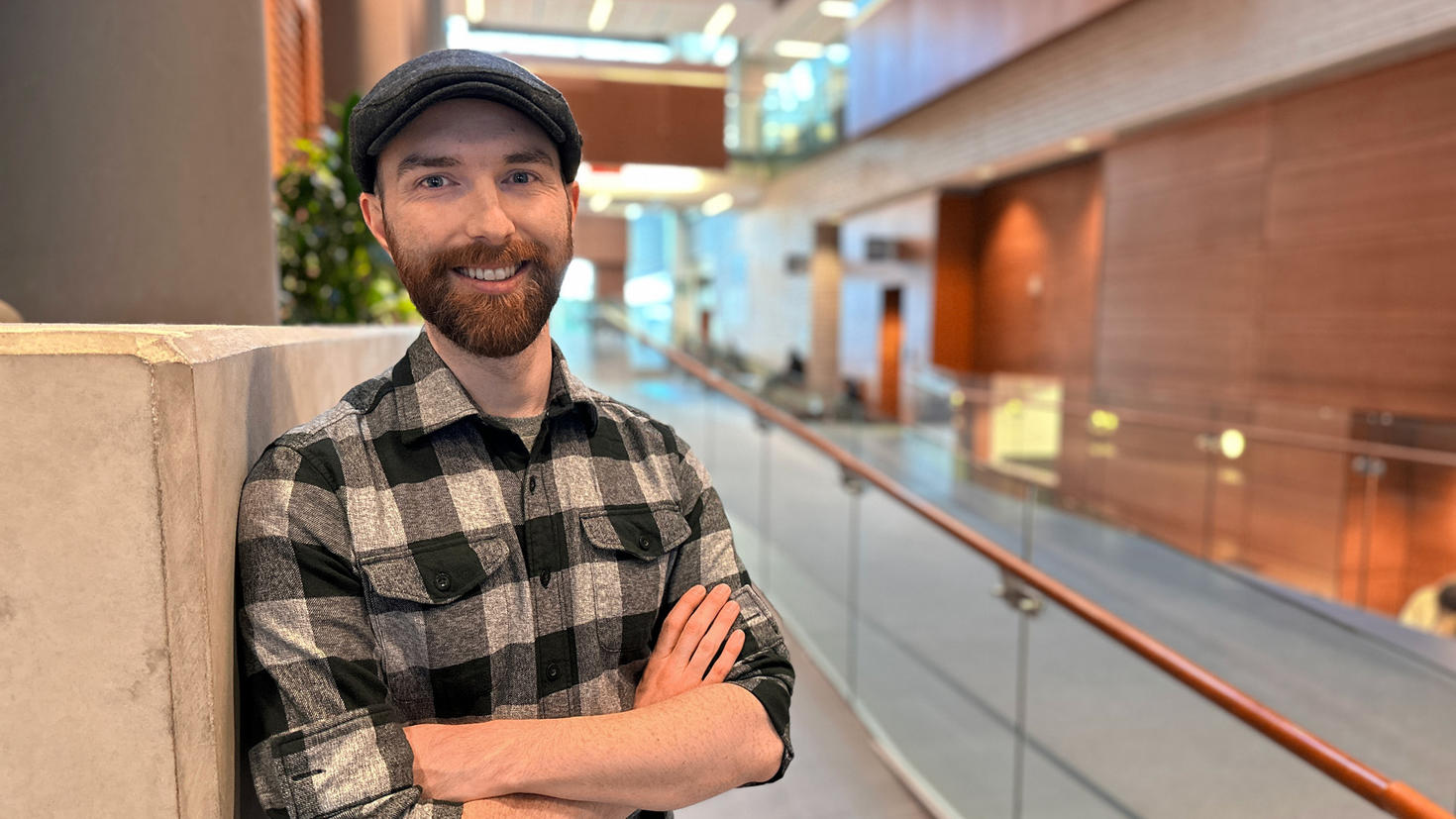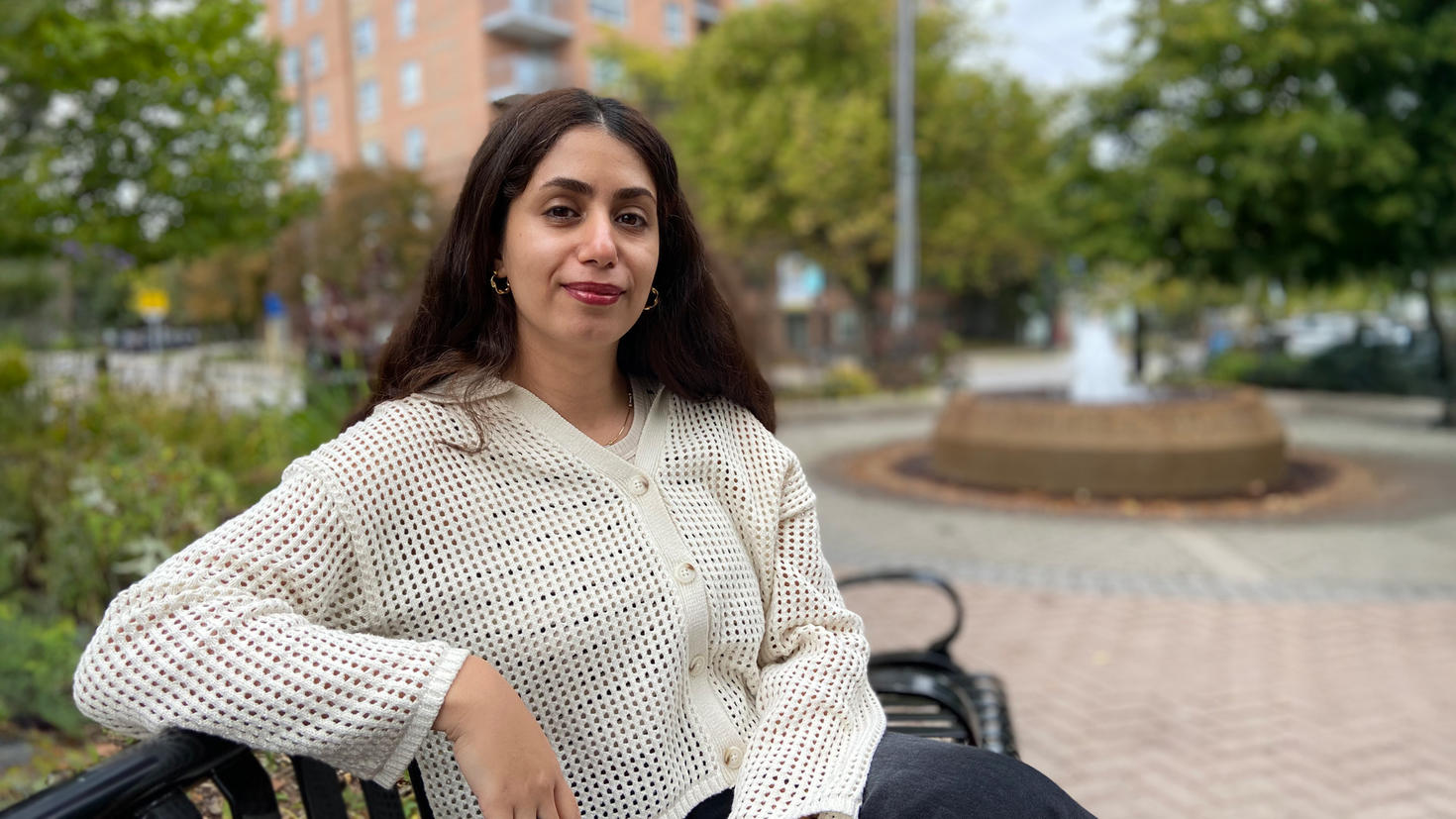Unlike traditional learning methods, such as memorizing formulas or analyzing static diagrams, Yazdani-Fazlabadi's research puts teacher education candidates into live, virtual 3D spaces where they can “experience” math.
“Movement and spatial reasoning are at the heart of mathematical understanding,” he explains. “When preservice teachers can walk through a vector or rotate it with their hands, they begin to see math as something alive and dynamic rather than abstract and distant,” he says.
Our interview is part of the Faculty’s Scholars in Education series.
Tell us about you and your background.
I am a doctoral student in the Faculty of Education at the University of Ottawa, where I explore how technology, particularly virtual reality, can enhance learning experiences. Before beginning my PhD, I taught English for Academic Purposes and worked in strategic communications with a focus on anti-racism, immigration and inclusion. I also have a strong interest in multilingualism and have worked as both a translator and a content creator. In addition to my academic work in education, I hold a graduate diploma in immigration and citizenship law from Queen’s University, which reflects my broader interest in inclusion, mobility and social systems.
Throughout my academic and professional journey, I have been motivated by a desire to help people navigate complex systems, whether in education, language or institutions. That motivation led me to research, where I aim to better understand how we can design learning spaces that are inclusive, engaging and meaningful for diverse learners.
Outside of academia, I am a parent, a dog lover, and someone who enjoys creative storytelling, especially when it brings cultures together. These experiences shape how I approach education as a living, relational and continuously evolving process.
Walk us through your PhD project.
My research looks at how immersive virtual reality (VR) can be used to support future teachers, particularly in mathematics education. I am especially interested in how preservice teachers, through interactive VR environments, experience and understand vectors, which is a key concept in secondary math. The study explores how VR might help learners move beyond rote memorization and instead develop a deeper understanding of structure, movement and spatial relationships involved in vectors. I designed a two-and-a-half-hour learning session using a VR application called MathVR. The session includes an orientation, a hands-on activity in a virtual environment, time for written reflection and a group discussion. I’ve been analyzing how these future educators make sense of vectors in three-dimensional space and how their thinking evolves during and after the experience. My goal is to better understand how immersive technology can support teacher learning and to offer practical ways in which VR can help build stronger mathematical understanding and confidence in classrooms that still rely on traditional methods.
What led you to this research area?
This project came from the intersection of a few key interests. I have always been curious about how people learn, especially in subjects like math, which many students find frustrating or intimidating. My background in communications and digital media also drew me to how technology can change the way we think and learn. When I first encountered immersive virtual reality in education, I saw it not just as a new tool, but also as a new kind of learning space. It gives learners the chance to see, move through, and feel ideas in a way that is not possible on paper or screens. I also remember how I struggled with math growing up. I could follow the steps, but I often did not truly understand the concepts. That experience made me wonder how we could help future teachers connect with math in more meaningful ways. That question, along with a desire to promote equity in education, led me to this work.
Who might benefit from your work?
I hope that preservice teachers will be the first to benefit from my research. Many future educators feel anxious about teaching math, and some have never experienced math as something they could explore with confidence or curiosity. If my work helps them build a deeper understanding of mathematical concepts, especially spatial ones like vectors, it could change the way they teach. That would benefit their future students as well. I also hope this research will support teacher educators and curriculum designers who are exploring how to integrate emerging technologies into meaningful learning experiences. On a broader level, I see this project as part of a larger conversation about inclusion and innovation in education. Existing math classrooms do not always serve all learners equally. If we can reimagine how math is taught and how teachers are trained, we can make learning more engaging, more accessible, and more effective for a wider range of students.
Any surprises thus far?
Yes, one of the most surprising findings has been how emotionally engaged participants became during the VR experience. I initially expected them to focus mainly on the math, but many described feelings of joy, curiosity and even a sense of wonder while exploring the virtual space. One person told me it was the first time they truly understood what a vector looked and felt like. That really changed the way I viewed the learning process. It showed me that understanding is not just intellectual. It can also be emotional and physical. Moving through space, turning a vector in your hands, or flying across a plane can make abstract concepts feel real. I had not anticipated how much participants’ feelings and bodily experiences would influence how they made sense of math. This led me to incorporate new frameworks into my research that consider feeling, motion and flow as central to learning, not just as side effects.
Was there a text or an idea you encountered during grad studies that reshaped your thinking?
One article that really influenced me is Audrey Macklin’s piece on citizenship and the idea of the alien. Although it focuses on immigration law, it made me think deeply about how systems, whether legal or educational, can exclude people while claiming to be neutral. That insight helped me reflect on my own research. When we bring technology into learning, we have to ask who it is for, who gets to access it, and who is assumed to belong. On the educational side, I have been particularly inspired by my supervisor, Professor Michelle Schira Hagerman, whose work on digital literacies, critical pedagogy, and teacher learning has shaped my perspective on immersive technology in education. She encourages me to ask deeper questions about equity, agency, and design in digital learning environments. Her mentorship has helped me see how technologies like VR can support more embodied, inclusive, and thoughtful approaches to learning that go beyond delivering content to truly engaging the learner.
Why uOttawa?
I chose the University of Ottawa because it offers the academic depth and interdisciplinary approach I was seeking. The Faculty of Education is recognized for encouraging critical thinking and for supporting innovative research, especially in areas related to equity, inclusion, and technology. I was also drawn to the university’s bilingual environment and its location in Canada’s capital, where numerous national and community-based initiatives intersect. The environment has provided me with the opportunity to work across departments and collaborate on meaningful projects beyond my thesis, including work related to Indigenous Affairs and strategic communications. The community here is vibrant, collaborative, and supportive. It is a place where I can continue to grow as a researcher, as well as a parent and communicator. The combination of strong academic resources and a welcoming environment made it the right choice for me. I have felt genuinely supported here, both in my research and in other aspects of my life.
About Babak Yazdani-Fazlabadi
Babak Yazdani-Fazlabadi holds a Master's degree in Applied Linguistics and a Graduate Diploma in Immigration and Citizenship Law from Queen's University, broadening his interdisciplinary perspective on education, inclusion, and mobility. He also has extensive experience in language teaching, multilingual education, and strategic communications.


